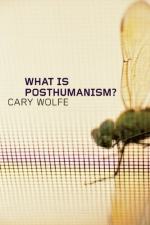|
This section contains 2,648 words (approx. 9 pages at 300 words per page) |

|
The posthumanist (sometimes called transhumanist) views human dignity as a matter of seizing the opportunity to modify and enhance human nature in ways that include the deceleration or arresting of aging, genetic engineering, the bodily introduction of nanotechnology and cybernetics, reproductive cloning, and even the downloading of mind into immortalizing computers. The anti-posthumanist responds that human dignity lies chiefly in accepting the existing contours of human nature as a gift, and that biotechnological efforts to recreate human nature according to inevitably arrogant and short-sighted images of perfectability should be greeted with severe skepticism. The debate between posthumanists and their critics over the future of human nature is rhetorically sharp; any resolutions can emerge only from inclusive discourse, with significant consensus on specific technologies of human modification arrived at only in the full light of disparate ethical self-understandings of the meaning of humanness both secular and sacred (Habermas 2003).
Radical Vs. Qualified Posthumanism
|
This section contains 2,648 words (approx. 9 pages at 300 words per page) |

|


